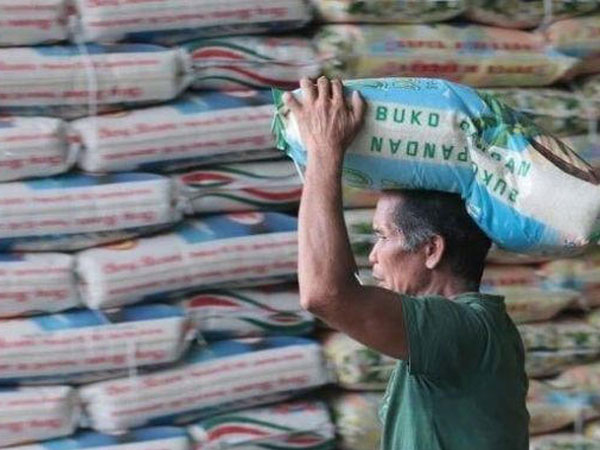 MANILA, Philippines — Rice tariff collections slumped by 63 percent in February from a year earlier, marking the fourth consecutive month of decline since tariff rates were slashed last year to historic lows.
MANILA, Philippines — Rice tariff collections slumped by 63 percent in February from a year earlier, marking the fourth consecutive month of decline since tariff rates were slashed last year to historic lows.
Government officials have signaled it would be difficult to meet the P30-billion collection target to bankroll the expanded rice competitiveness enhancement fund (RCEF).
The Bureau of Customs (BOC) collected about P1.23 billion in rice tariffs last month, about P2.08 billion lower than the P3.31 billion recorded in the same period last year, its preliminary figures showed.
Like in January, the drop in rice tariff collections can be traced to the decline in import volume coupled with the imposition of the reduced rate of 15 percent.
Rice import volume fell by almost 10 percent year-on-year to 297,348 metric tons in February from 329,879 MT.
The average price of imported rice last month has fallen below $500 per MT, reflecting world market movements that saw rice export prices easing due to more available supplies from India and Vietnam.
BOC data showed that the average price of imported rice in February settled at $477.17 per MT, some seven percent lower than the $510.83 per MT recorded last year.
The Department of Agriculture (DA) has noted that rice imports would be lower than last year due to high carry-over stocks and projected better domestic palay harvest this year.
Aside from this, the imposition of a maximum suggested retail price (MSRP) on imported premium rice also contributed to lower rice imports, as noted by industry players and international observers.
Agriculture Assistant Secretary Arnel de Mesa said total rice imports this year may fall below last year’s record high of 4.8 million MT if the downward trend continues. De Mesa said the full-year rice import volume may settle between 3.6 million and four million MT.
At present, rice imports are averaging around 270,000 MT a month, nowhere near the 400,000 MT average monthly rice import arrivals last year, De Mesa pointed out.
“It will be hard to meet the P30 billion [rice tariff collection] requirement [under the law],” he said.
The country’s rice imports in the first quarter declined by 32 percent year-on-year to 804,347 MT from last year’s 1.19 million MT, latest Bureau of Plant Industry data showed.
Rice tariffs have become essential since 2019 as they are earmarked to the RCEF that aims to improve the productivity and competitiveness of the domestic rice industry.
Under the amended rice tariffication law, the RCEF will have a guaranteed allocation of P30 billion until 2031. The law also mandated that any shortfall in rice tariff collections would be plugged by the General Appropriations Act (GAA) by sourcing additional budget from the DA.
Agriculture Secretary Francisco Tiu Laurel Jr. has assured the public, especially palay farmers, that the falling world rice prices and lower tariffs would not impact the budget for the RCEF in the coming years. Tiu Laurel pointed out that the deficit in rice tariff collections would be augmented through the GAA.














© Copyright 2025 The SSResource Media.
All rights reserved.